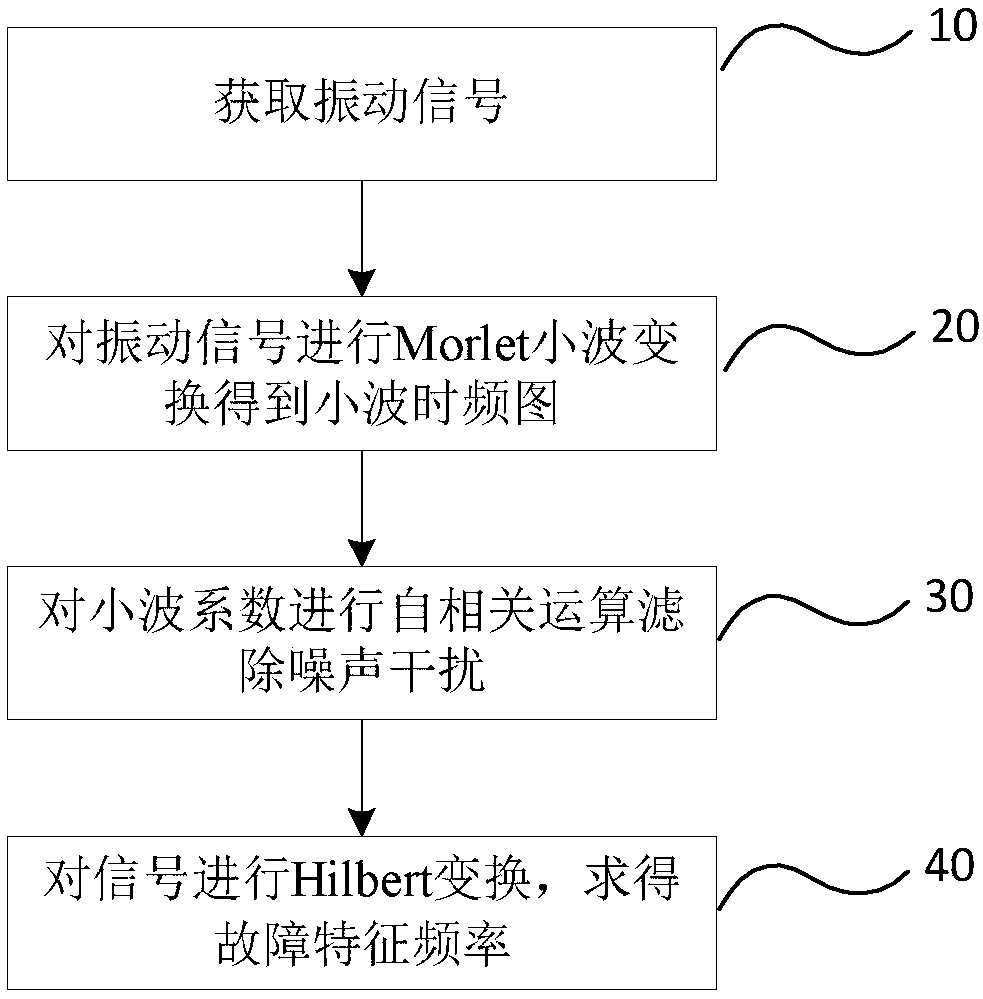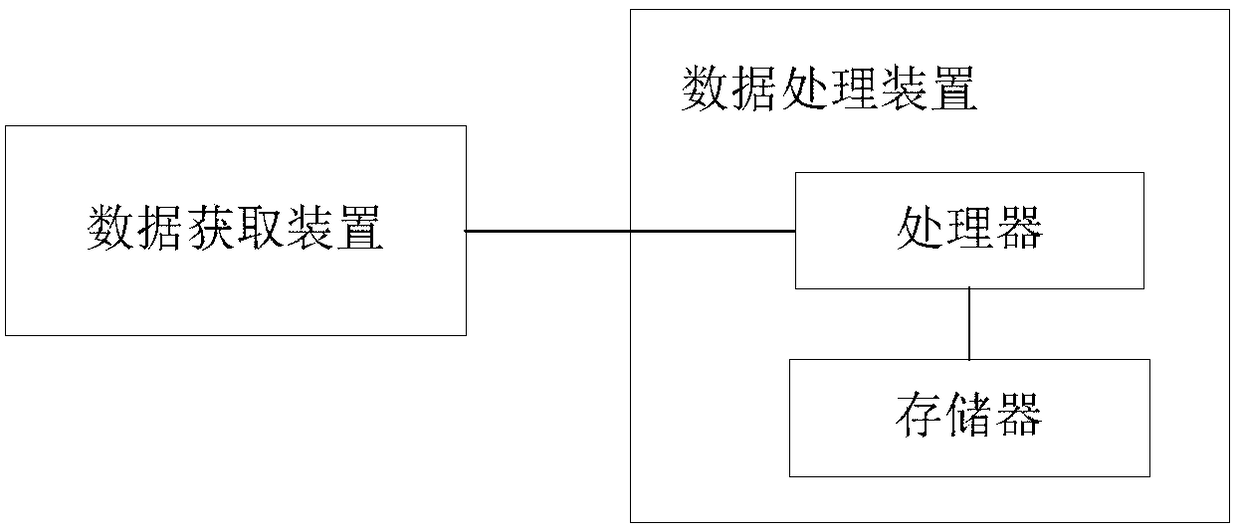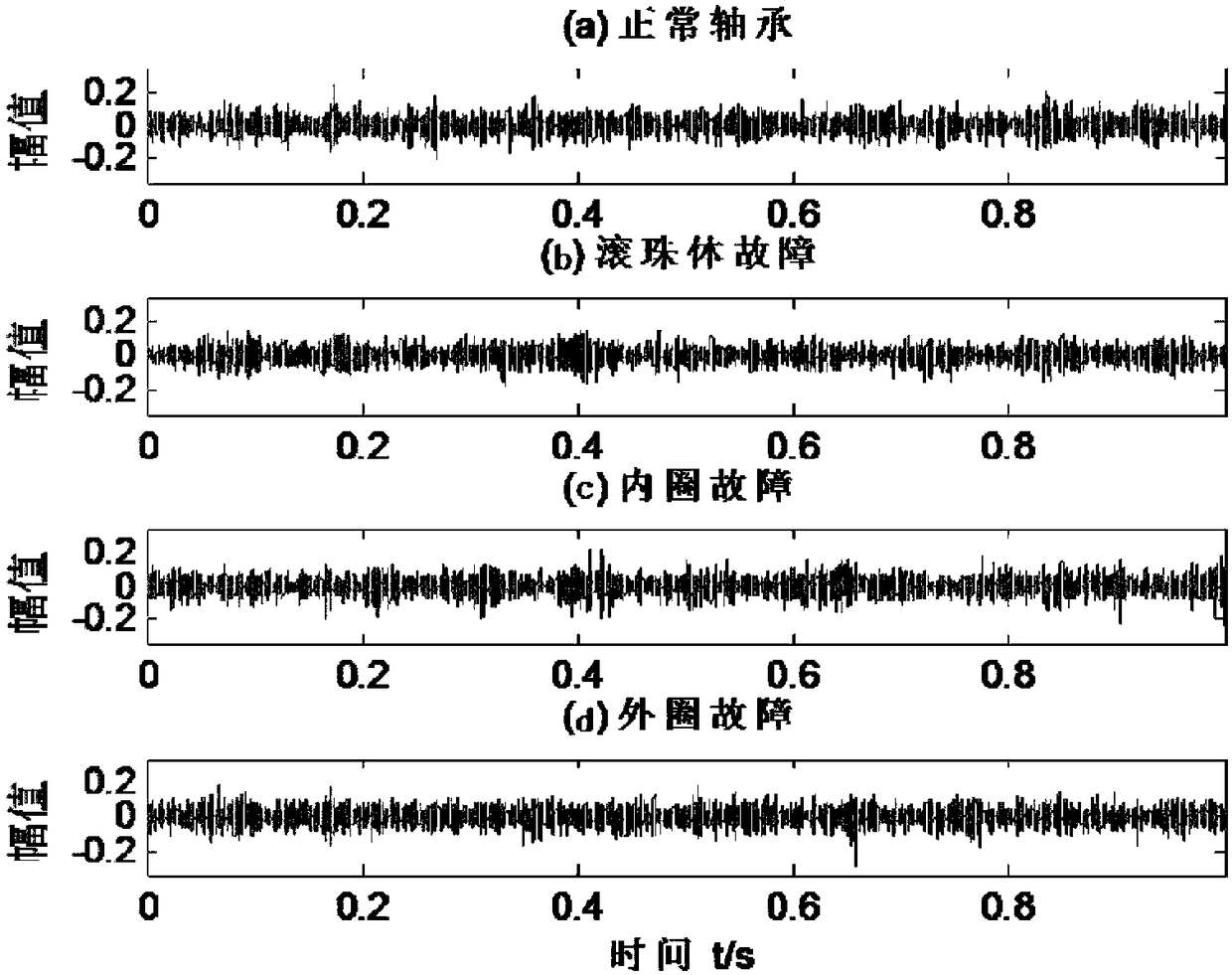Method and device for extracting weak characteristic from fault signal of antifriction bearing
A rolling bearing and fault signal technology, which is applied in the field of feature extraction of weak fault signals of rolling bearings, can solve problems affecting fault feature extraction, large discrete intervals, roughness, etc., achieve good time-frequency resolution and transient detection capabilities, improve accuracy and Effects of speed, noise reduction and impact
- Summary
- Abstract
- Description
- Claims
- Application Information
AI Technical Summary
Problems solved by technology
Method used
Image
Examples
Embodiment Construction
[0059] The technical solution of the present invention will be further described below in conjunction with the accompanying drawings.
[0060] refer to figure 1 and figure 2 , the present invention provides a method for feature extraction of rolling bearing weak fault signals based on an improved wavelet time-frequency diagram, the method comprising the following steps: step 10, obtaining the vibration signal of the rolling bearing; step 20, performing continuous wavelet decomposition on the vibration signal to obtain Continuous wavelet time-frequency diagram; step 30, perform autocorrelation operation on the wavelet coefficients, and filter out noise interference; step 40, extract the envelope characteristics of the autocorrelation function obtained through the autocorrelation operation of the wavelet coefficients and perform envelope spectrum analysis to obtain the fault characteristic frequency. Different steps are performed by corresponding devices in the extraction dev...
PUM
 Login to View More
Login to View More Abstract
Description
Claims
Application Information
 Login to View More
Login to View More - R&D
- Intellectual Property
- Life Sciences
- Materials
- Tech Scout
- Unparalleled Data Quality
- Higher Quality Content
- 60% Fewer Hallucinations
Browse by: Latest US Patents, China's latest patents, Technical Efficacy Thesaurus, Application Domain, Technology Topic, Popular Technical Reports.
© 2025 PatSnap. All rights reserved.Legal|Privacy policy|Modern Slavery Act Transparency Statement|Sitemap|About US| Contact US: help@patsnap.com



